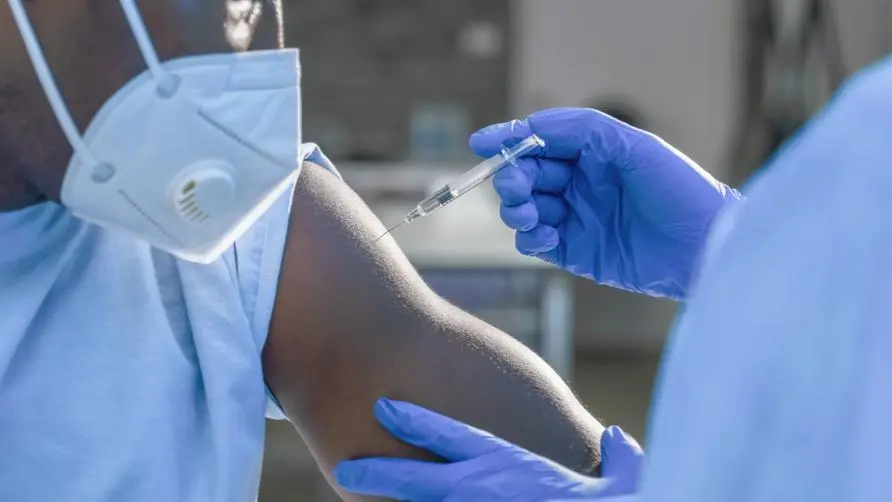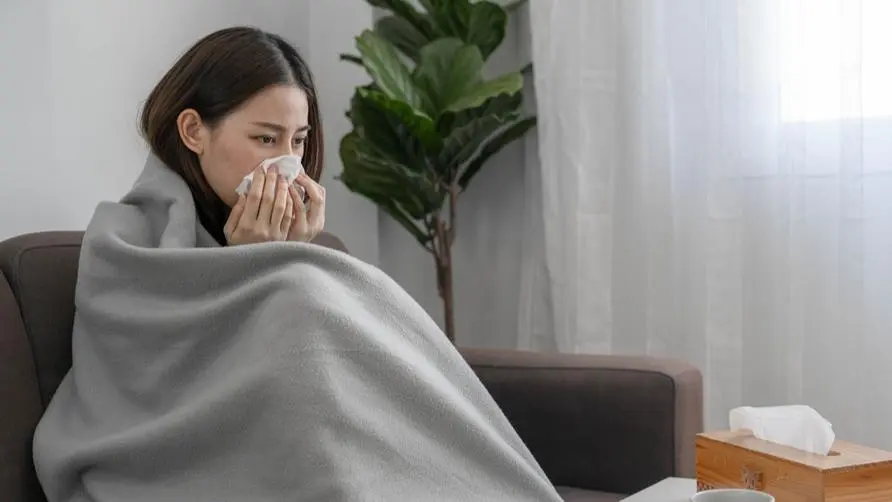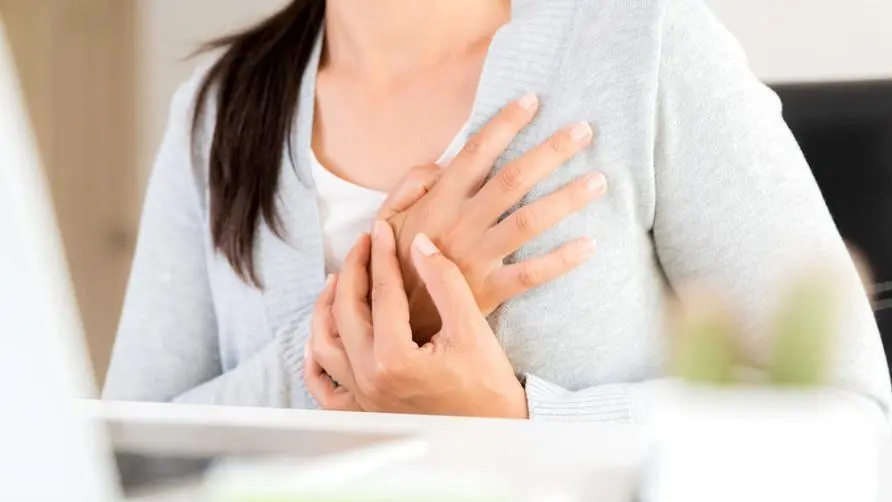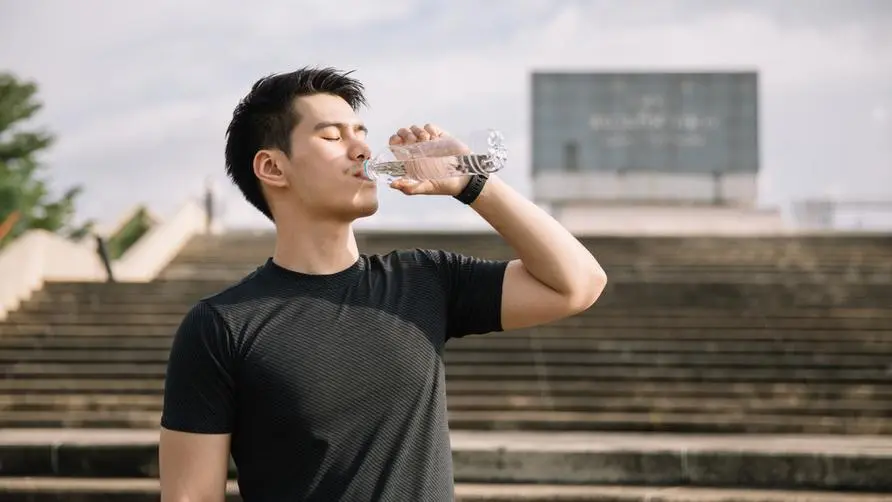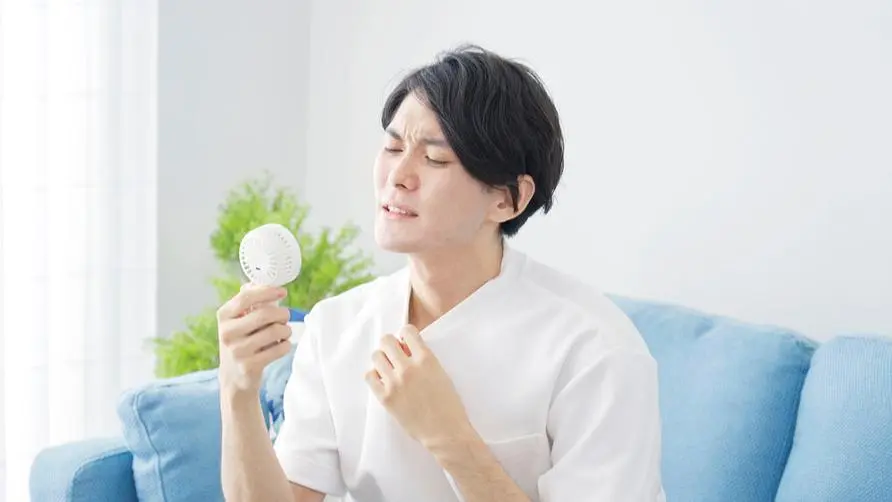Will the cold wave and the lifting of lockdown lead to cardiovascular disaster? Doctor: Myocardial infarction and pneumonia emergency room surgeries! The 3 most dangerous signs during exercise
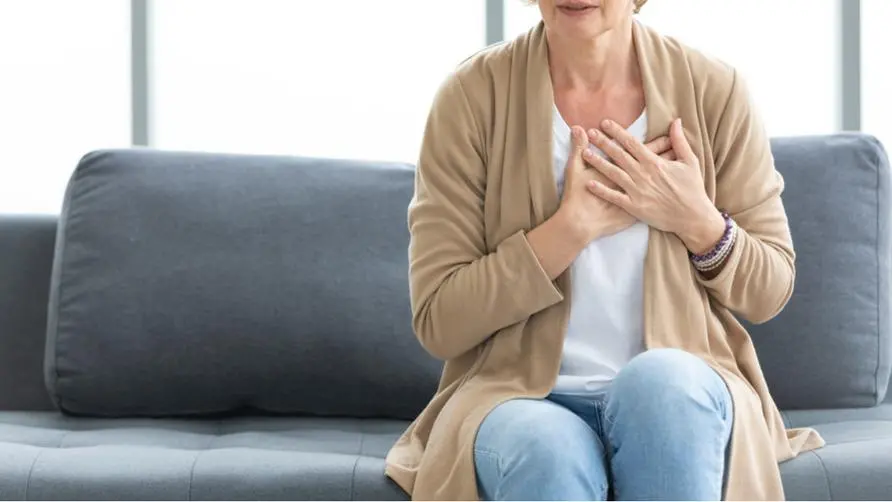
Myocardial infarction and stroke most often occur during cold snaps? 2 parts of the body need to be kept warm the most
The cold snap has been approaching recently and temperatures have plummeted in Taiwan. At-risk groups should pay attention to the sudden onset of cardiovascular disease. Chen Jieyu, the attending physician of the Department of Cardiology at Cathay Hospital, pointed out in an interview that stroke and myocardial infarction are likely to occur when the seasons change and the temperature changes drastically, especially when the three high blood pressure (hypertension, hyperlipidemia, and hyperglycemia) or have suffered from cardiovascular disease and If you have a history of stroke, etc., when a cold wave hits, your blood vessels may contract violently, causing plaques in the blood vessels to rupture and form thrombus, so be sure to take adequate measures to keep warm.
Dr. Chen Jieyu pointed out that the temperature in the past two weeks has dropped significantly compared with last month. With the arrival of the cold wave, the number of myocardial infarction cases in the hospital has also shown an upward trend. High-risk groups and the elderly are reminded to wear warm clothing. Nowadays, with the technological advancement of fabric materials, it is not necessary to wear traditional heavy clothes to achieve the warmth effect. You can choose a lightweight down vest or down jacket, which also has a significant warmth effect.
Dr. Chen Jieyu said that high-risk groups should pay attention to keeping their necks and trunks warm. Since the neck directly affects the temperature of the blood flow entering the brain, patients who have had a stroke should pay attention to keeping their necks warm. As for those with cardiovascular problems, they should keep their body and trunk warm to avoid stimulating blood vessels and increasing the load on the heart.
Does cold water bathing help cardiovascular health? Dangerous groups should not soak in hot springs deeper than their heart
Is taking a cold bath in winter good for cardiovascular health? Dr. Chen Jieyu explained that if normal people are kept under a certain temperature, their bodies will have sufficient tolerance to temperature. However, for those with cardiovascular risk factors, engaging in activities with excessive temperature differences may easily cause coma, stroke or even myocardial infarction. . Many Taiwanese people like to soak in hot springs when the weather is cold. If the temperature of the hot springs exceeds the heart level and sudden exposure to cold air when standing up, the cardiovascular system may expand and contract rapidly.
Dr. Chen Jieyu reminds that if you have cardiovascular disease, you should avoid bathing in hot springs above the level of your heart. When leaving hot springs or heated swimming pools, dry your body as soon as possible to keep warm. For patients with high blood pressure and cardiovascular disease, it is not recommended to soak in hot springs and heated swimming pools for more than 10-15 minutes, and should be done intermittently to reduce the burden on the heart. It is also necessary to avoid severe “alternation of hot and cold”, such as soaking in a cold spring immediately after bathing in a hot spring, which can easily cause a great burden on the heart and cerebral blood vessels.
Is it most dangerous for cardiovascular disease in the middle of the night and early in the morning? There are 3 signs that exercise in cold weather is about to stop
Is it the most dangerous time for cardiovascular disease before and after getting up? Dr. Chen Jieyu pointed out that due to the cooling effect of radiation, the early morning is often the lowest time of the day. Cardiovascular patients must wear long sleeves or warm clothes when they get up and leave the bed in the middle of the night or early in the morning. They can also use heaters to maintain a constant indoor temperature. Reduce the risk of cardiovascular disease caused by alternating hot and cold temperatures when standing up. In addition, people who take high-risk drugs such as anticoagulants are prone to slipping and falling when getting up in the middle of the night. They may hit their head and cause cerebral hemorrhage, so they should be extra careful.
Dr. Chen Jieyu said that the temperature has dropped sharply in the past one or two weeks, and as the epidemic has been lifted, the proportion of people wearing masks has dropped. The number of patients going to emergency rooms due to cardiovascular diseases and pneumonia infections has increased significantly. High-risk groups are reminded to wash their hands frequently, wear masks, and follow the recommendations to receive various vaccines such as influenza and Streptococcus pneumoniae.
Dr. Chen Jieyu reminded that road running events such as the Taipei Marathon have been taking place recently. Engaging in strenuous exercise in cold weather will increase sweating and dehydration. Sudden cardiac death occurs in marathons every year. High-risk groups must exercise within their means when participating in road running activities. Once they notice chest tightness, decreased physical endurance, or asthma, they should immediately suspend exercise and replenish appropriate amounts of water and electrolytes to protect cardiovascular health.
Further reading:
